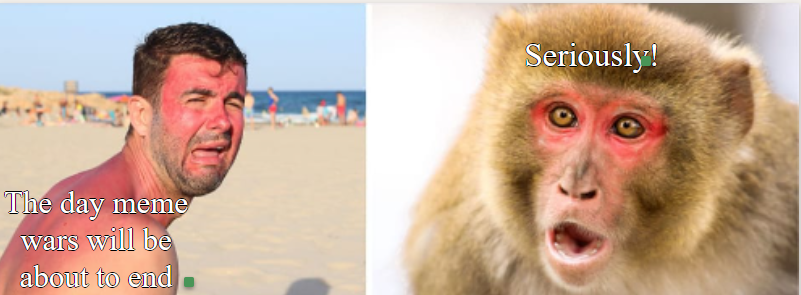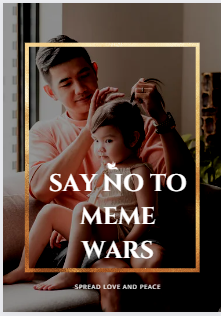The usage of memes in online disputes is only sometimes harmless. Meme wars may quickly devolve into bloodbaths, with both sides resorting to personal assaults, hate speech, and other types of online harassment. It is especially true when the disagreement is founded on ideological, ethnic, or religious differences when emotions and views are strong (Donovan et al., 2022). Meme wars have a wide-ranging influence on our culture. On the one hand, they provide a forum for individuals to voice their opinions and participate in debates about a variety of issues. A better platform for self-expression can lead to a greater understanding of diverse points of view and encourage constructive debate.
Meme wars, on the contrary, can encourage alienation and hate speech due to their aggressive and frequently inflammatory character. Its negative attributes can harm the internet environment and encourage incorrect information and misinformation dissemination. The emergence of meme wars has also sparked debate over the role of social media corporations in policing online material. While these firms have taken steps to counteract hate speech and disinformation, the internet’s nature and the simplicity with which memes may be generated and disseminated make it impossible to regulate the dissemination of bad content (Donovan et al., 2022). The memes created and illustrated below emphasize how much internet users are addicted to spreading provocative messages via the internet by using memes.
Meme 1

Meme 2

Meme 3

I chose the images highlighted above because they represent the mentality of most people on the internet who are highly fond of creating memes with provoking messages. As illustrated above, the first and third memes represent internet users who are only interested in passing their agendas via memes. However, the second image represents people who respect the internet platform and understand that meme wars only worsen radical online conversations instead of improving them.
The particular memes in context are similar to existing memes that are often posted online because they have an intended audience. It is rather easy for some using the internet to understand whether they are in support of or refute the message embedded in each of the images above. Moreover, these have a sense of humor for those who relate to the message it intend to relay.
The memes above will have a positive impact on their intended users by illuminating the negative effects of meme wars. Therefore, not only will it appeal to people with the intent to redeem peace on the internet, but it will also convince people to use the internet for good intentions. Nonetheless, the message within the memes will only be relevant to those actively engaged in meme wars. Viewing my memes will help them understand the repercussions of what they do online. Internet users must understand that their actions have consequences. For instance, the first meme shows the disparity between people who live for the thrill of engaging in meme wars versus other internet users who are not fond of that particular behavior. The second image represents people who do not engage in meme wars, hope for the ends of it, and advocate for people to engage in better online behavior. The last photo represents internet users who tend to post provoking memes on social media without first thinking of the impact of their actions on other people. Unfortunately, such people do not even understand how fast information spreads on the internet.
References
Donovan, J., Dreyfuss, E., & Friedberg, B. (2022). Meme wars: The untold story of the online battles upending democracy in America. Google Books. Web.